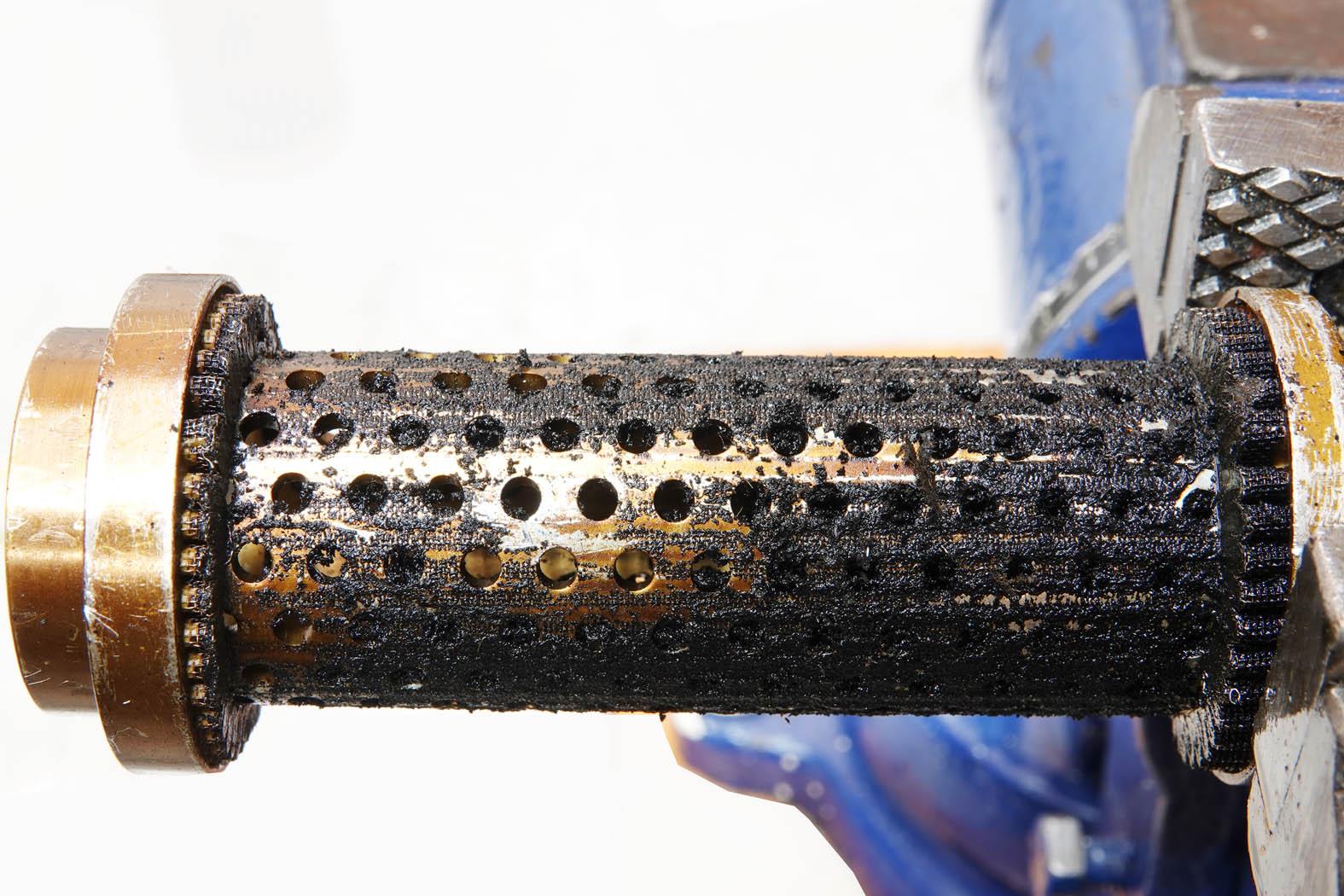Are Your Filters Doing Their Job?

Oil filters protect our machines from damaging contaminants, but how do you know if they are doing their job properly? Oil analysis can tell you something about the performance of your filters, but if you truly want to understand how they are performing, it might be time to take a closer look at the filters themselves.
Filter testing could help you identify impending machine failure, track filter performance or even help you make a better decision about a new filter purchase or filtration supplier choice. If you are considering a major filter expense (or you’re already spending a lot of money on filters), taking a moment to test new or in-service filters is a great way to ensure that you aren’t wasting precious resources.

Example Examination for Electrostatic Discharge (ESD) Damage

Types of Filter Analysis
Noria provides two types of filter testing: used and new. Both can be beneficial depending on your goals. Let’s take a look at the process involved with each type of testing.
Used Filter Testing
Used filter analysis can help determine the ultimate root cause(s) of a machine or filter failure. Akin to reading an ice core sample or a computer hard drive, a used filter acts as a historical record for your machine’s overall health and the state of its lubrication. While oil analysis is also crucial when diagnosing failing machines, consider that one oil sample can only inform you of what is happening in your machine’s oil at that particular moment. Youwon’t be able to determine trends or pinpoint when an issue originated.
Used filters offer a compiled historical record of wear particles generated in various frictional services such as bearings, gears, pistons, pumps and cams




Example image at 500X Sized 0.5-250 μm from a Filter Testing Services report showing a moderate amount of metallic wear debris damaged by electrostatic discharge arcs along with coked lubricant and silica crystals.
Other particles are also examined and include manufacturing debris, environmental and airborne dust, corrosion particles and various close-proximity contaminants.
Understanding what is in a used filter provides a detailed account of the overall health and state of the lubricant and machine.

Example of Scanning Electron Microscope (SEM) Analysis of Particle Matter
New Filter Performance Testing
Testing a new filter might seem like overkill, but since filters are consumable products, the long-term cost of choosing the wrong filter or even a sub-optimal filter for your application can be enormous. New filters should be tested periodically to confirm their performance meets applications requirements — the filter’s capture efficiency, dirt-holding capacity and fluid resistance — or which of multiple expensive filter brands would best suit your needs.Testing done by laboratory analysis independent of the filter manufacture ensures unbiased data and interpretation.
Many companies use the same model of filter for every machine. The performance of such filters will determine every aspect of the end products these companies produce. Make sure it’s of the consistent quality you should expect. Filter analysis also helps to sustain an oil’s lifespan. Expensive oil like those synthetics used for gas turbine applications would cost a pretty penny to replace unnecessarily.
Typical tests performed include:
- Fabrication Integrity Testing (Bubble Point, etc.)
- Non-destructive (SAE ARP 901, etc.)
- Multipass Testing (Beta) — Capture Efficiency, Dirt-holding Capacity and Pressure vs. Flow (ISO 16889, ISO 4548-12, etc.)
- Flat-sheet and Media Integrity Testing
- Drawn Down Test
Noria’s usual turnaround time for routine filter testing is 1-2 weeks, however, certain tests will require more time. Of course, there any many possible variables depending on what questions you’re seeking to answer and what tests would offer the most useful data, but the price range for a filter analysis would between $500-$15,000. The results of your filter tests will cover any wear particles, contaminants and/or sludge or varnish present, identify any plugged areas, check for water contamination, and/or electrification (ESD) results.
Downtime typically costs 5-10 times the price of filter testing. Ignoring filter analysis leaves a blind spot in your condition monitoring universe. Let’s shed some light on it.
If you have questions about filter testing, visit Noria’s Filter Testing Services page for more information or to request a quote.